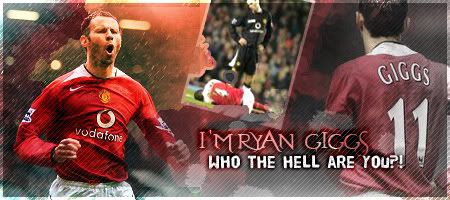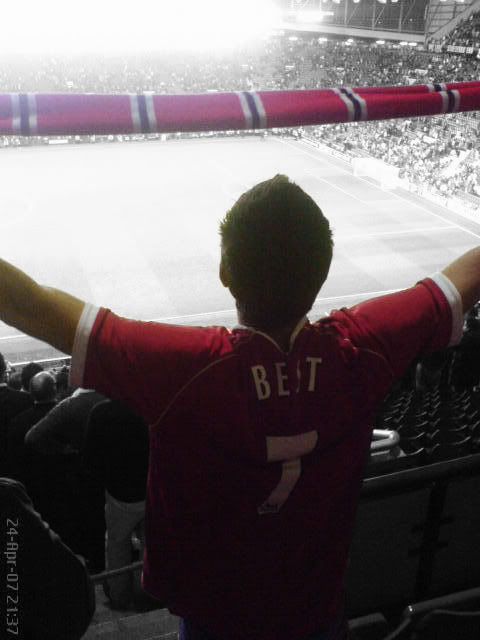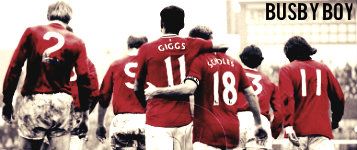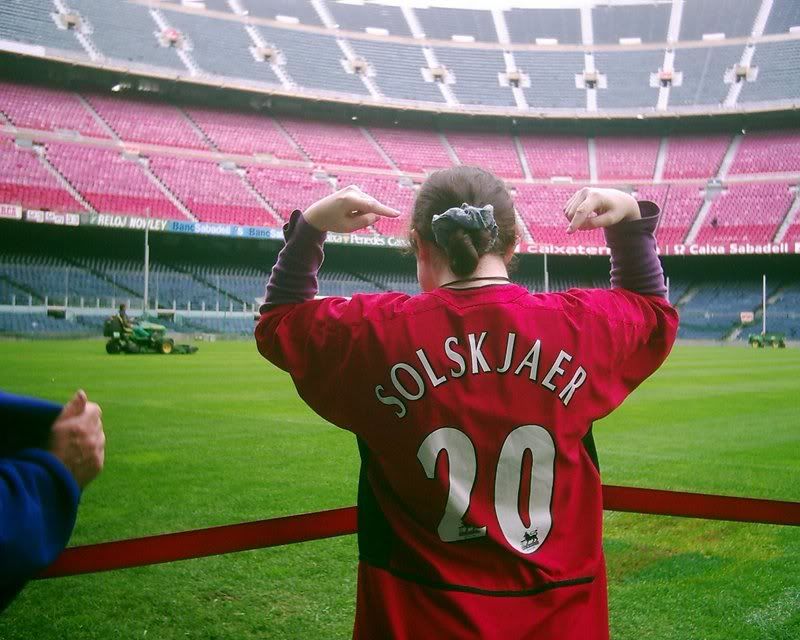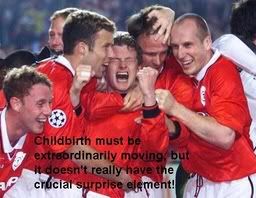Post by Scott on Jun 4, 2006 14:43:51 GMT
From The Guardian:
When England won the World Cup on that glorious afternoon in 1966, Nobby Stiles cavorted across the Wembley pitch like a gap-toothed jester and an unappealing part of north London became what Larkin, writing about something else, called a 'paradise everyone old has dreamed of all their lives'.
Not only the oldies. If you were a football-daft seven-year-old, following the match on television in Albert Road, Bolton, there was particular delight in seeing Alan Ball run his little socks off; man of the match in a World Cup final at 21, and a Farnworth lad, too. At Devonshire Road primary, we may not all have known our nine times table but nobody doubted that Lancashire was the home of English football, and now the world knew it.
On a journey to Bavaria that summer, Harald Makant, son of a Sudeten German teacher and a colleague of my mother's, proclaimed: 'Ich bin ein Englander!' And who, looking at the understated nobility of Alf Ramsey's team, wouldn't want to be English? In Bobby Moore, the captain, Bobby Charlton and Gordon Banks, it boasted three men who would challenge for a place in any all-time XI. They were much more than outstanding footballers. They were modest men who won (and, four years later, in Mexico, lost) with grace.They were proper chaps.
As we have been informed countless times, those men earned £1,000 for being the best. The current bunch will each be £300,000 better off if they win this time. Are they 300 times more deserving? In the time-honoured words of Play School, let's have a look through the round window. What do we see?
Rio Ferdinand, for one, a defender some compare with Bobby Moore, presumably because he began life at West Ham. Moore was no angel. He liked a drop and occasionally consorted with folk who drove white Jags, but he never forgot to piss in a pot, as Ferdinand did, despite being reminded of his drugs test half an hour before he should have attended it. Instead, he sauntered off on a shopping trip, looking for another pair of ripped jeans.
Next we see John Terry and his Chelsea team-mate, Frank Lampard, who abused American tourists in a hotel lounge while the cinders were still glowing at Ground Zero. And Joe Cole, another Chelsea player, spotted earlier this year fleeing half-dressed from a party. The other Cole, Ashley, appears to spend more time talking to Chelsea than playing for Arsenal, who happen to employ him.
We see Wayne Rooney, a gifted striker, who told the England bench to 'fuck off' after being withdrawn (for his own sake) from a friendly in Madrid. At the senatorial age of 20, he has signed a five-book deal, to reveal his innermost thoughts. Perhaps he will tell us why he tore off a black armband on that shameful night, worn in honour of Emlyn Hughes, a former England captain, and flung it to the ground.
And we see David Beckham, a very good midfield player in his pomp, crippled by the celebrity he craved. Sent off twice in an England shirt for acts of petulance, yet retained as captain by the manager, Sven-Goran Eriksson, to whom he is linked umbilically. Beckham and his ghastly consort, Lady Posh, are beyond parody.
Then there are the other players who must remain unnamed: the one who casually handed a cabbie £1,000 for a journey back to Manchester after a night's carousing in London; the one who halted his 4x4 in a Soho street, blocking the traffic, wandered into a record shop and threw the CD's wrapping out of the window as motorists hooted; the one who told a police officer who was warning him about his drunken behaviour: 'The youth of today look up to people like me.'
They make a lovely bunch.But their immaturity should not be so surprising when the game is infested by small armies of mediocrities and few men of substance. Surely no other human pastime attracts so many nest-featherers and show-offs. Patrick Barclay, who writes so beautifully about the sport, made no bones about it in a recent essay: 'It's time football declared itself bankrupt, morally bankrupt.' Fat chance. For one thing, there's too much money sloshing about.
Then there are 'the fans', who, for more than 30 years, have ransacked the cities of Europe. Not even the Grand Duchy of Luxembourg was spared. Yet there are still people who will rally to their cause if one points out that rugby supporters (of both codes) can enjoy a day out without brawling. There has never been and never will be segregation at rugby matches, where the supporters drink far more. They actually enjoy the fellowship of their opponents, which makes football people, raised on rancid tribalism, hate them even more. Only the other week, Paul Wilson of this parish wrote that, while England's supporters did not always behave well, at least they reminded you that you were not at Twickenham.
In years to come, social historians will be puzzled by the eagerness of so many modern Britons, of all classes, to embrace the fetid practices of football support. They need only turn to Theodore Dalrymple, fearless critic of urban life. In 1997, Dalrymple was in Rome, where England were playing a World Cup qualifying match, and his account of that evening's violence repays study.
'There were two surprising things about this deeply unattractive crowd,' he wrote. 'The first was that many among them were well-educated, and the second was that when the carabinieri charged, they immediately began to feel self-pity and injured outrage. It was as if their inalienable right to behave like scum had been unfairly challenged.'
He went on: 'The vile behaviour of the English football fans abroad is, in fact, a symptom of a deep and rapidly advancing cultural phenomenon, the proletarianisation of British life. The England fans abroad are not, of course, proletarians of the Lancashire mill variety - they are far too well-heeled for that - and real proletarians used to behave a great deal better. But they are pretending to be proletarian.'Bull's eye.
Inverted snobbery is not exclusive to football - indeed it has become a national obsession (listen to all those estuarine voices on radio and television) - but it took an outsider like Dalrymple to recognise, as others closer to the sport have failed to, the cultivated slumming that passes for social virtue.
We were told that the European Championship that England hosted 10 years ago was a festival of amity. Having witnessed at first hand how Trafalgar Square was cordoned off after the game with Spain, with broken glass everywhere, and hundreds of drunks frolicking in the fountains while the police funnelled bemused tourists towards Whitehall, I take a different view. And that was after England had won.
Nothing much has changed, no matter what the football authorities may say. The English football fan, when surrounded by hundreds of his kin, remains a national embarrassment. Why else would the German police feel it necessary to announce that they will not tolerate Nazi salutes or offensive songs during the World Cup? Because they know that English fans cannot get through a game, or an afternoon on the pop, without offering the locals insults, obscenities and cracked heads.
Naturally I shall be supporting England this summer. I shall support Britten at Glyndebourne, Elgar at the Three Choirs Festival, the Constable exhibition at Tate Britain and our cricketers, led by the great Andrew Flintoff (or the equally noble Michael Vaughan), a man who Wellington himself might have promoted colonel. But, despite the ancestral voices, I shall not support the footballers. Their game brings out the worst in us, just as cricket and rugby, sports that reveal more about human character, tend to bring out the best.
Instead, I shall root for the Hun, out of perversity (England fans hate the sausage-eaters more than anybody) and out of admiration for that land, its people and its football. The Germans don't feel it necessary to brag about what they haven't done because they have the trophies to show what they have accomplished - three World Cups and as many European Championships.
Four summers ago, I watched the World Cup final between Germany and Brazil in my favourite bar, a mile from the Olympic Stadium that will stage this year's grand contest. No Berliner present that day wore a replica shirt, shouted abuse at the other team or got drunk, though strong drink was certainly taken.
As we approach the tournament, all those illiterate telly pundits will bump up England's chances and brush up their German cliches. 'Teutonic efficiency' they will tell us - yawn - as if that lazy phrase could account for Bach, Beethoven, Schumann, Mendelssohn, Wagner and all those painters, writers, scientists and philosophers. In football, it is a good list, too. Even if we start in 1966, which brought our day in the sun, the Germans have had Beckenbauer, Maier, Breitner, Muller, Vogts, Overath, Grabowski, Netzer, Bonhof, Schuster, Rummenigge, Klinsmann, Matthaus and Sammer. Rather better than our lot, wouldn't you agree?
Forty years on, I can invert Master Makant's proclamation. For one month at least: 'Ich bin ein Deutscher.'
When England won the World Cup on that glorious afternoon in 1966, Nobby Stiles cavorted across the Wembley pitch like a gap-toothed jester and an unappealing part of north London became what Larkin, writing about something else, called a 'paradise everyone old has dreamed of all their lives'.
Not only the oldies. If you were a football-daft seven-year-old, following the match on television in Albert Road, Bolton, there was particular delight in seeing Alan Ball run his little socks off; man of the match in a World Cup final at 21, and a Farnworth lad, too. At Devonshire Road primary, we may not all have known our nine times table but nobody doubted that Lancashire was the home of English football, and now the world knew it.
On a journey to Bavaria that summer, Harald Makant, son of a Sudeten German teacher and a colleague of my mother's, proclaimed: 'Ich bin ein Englander!' And who, looking at the understated nobility of Alf Ramsey's team, wouldn't want to be English? In Bobby Moore, the captain, Bobby Charlton and Gordon Banks, it boasted three men who would challenge for a place in any all-time XI. They were much more than outstanding footballers. They were modest men who won (and, four years later, in Mexico, lost) with grace.They were proper chaps.
As we have been informed countless times, those men earned £1,000 for being the best. The current bunch will each be £300,000 better off if they win this time. Are they 300 times more deserving? In the time-honoured words of Play School, let's have a look through the round window. What do we see?
Rio Ferdinand, for one, a defender some compare with Bobby Moore, presumably because he began life at West Ham. Moore was no angel. He liked a drop and occasionally consorted with folk who drove white Jags, but he never forgot to piss in a pot, as Ferdinand did, despite being reminded of his drugs test half an hour before he should have attended it. Instead, he sauntered off on a shopping trip, looking for another pair of ripped jeans.
Next we see John Terry and his Chelsea team-mate, Frank Lampard, who abused American tourists in a hotel lounge while the cinders were still glowing at Ground Zero. And Joe Cole, another Chelsea player, spotted earlier this year fleeing half-dressed from a party. The other Cole, Ashley, appears to spend more time talking to Chelsea than playing for Arsenal, who happen to employ him.
We see Wayne Rooney, a gifted striker, who told the England bench to 'fuck off' after being withdrawn (for his own sake) from a friendly in Madrid. At the senatorial age of 20, he has signed a five-book deal, to reveal his innermost thoughts. Perhaps he will tell us why he tore off a black armband on that shameful night, worn in honour of Emlyn Hughes, a former England captain, and flung it to the ground.
And we see David Beckham, a very good midfield player in his pomp, crippled by the celebrity he craved. Sent off twice in an England shirt for acts of petulance, yet retained as captain by the manager, Sven-Goran Eriksson, to whom he is linked umbilically. Beckham and his ghastly consort, Lady Posh, are beyond parody.
Then there are the other players who must remain unnamed: the one who casually handed a cabbie £1,000 for a journey back to Manchester after a night's carousing in London; the one who halted his 4x4 in a Soho street, blocking the traffic, wandered into a record shop and threw the CD's wrapping out of the window as motorists hooted; the one who told a police officer who was warning him about his drunken behaviour: 'The youth of today look up to people like me.'
They make a lovely bunch.But their immaturity should not be so surprising when the game is infested by small armies of mediocrities and few men of substance. Surely no other human pastime attracts so many nest-featherers and show-offs. Patrick Barclay, who writes so beautifully about the sport, made no bones about it in a recent essay: 'It's time football declared itself bankrupt, morally bankrupt.' Fat chance. For one thing, there's too much money sloshing about.
Then there are 'the fans', who, for more than 30 years, have ransacked the cities of Europe. Not even the Grand Duchy of Luxembourg was spared. Yet there are still people who will rally to their cause if one points out that rugby supporters (of both codes) can enjoy a day out without brawling. There has never been and never will be segregation at rugby matches, where the supporters drink far more. They actually enjoy the fellowship of their opponents, which makes football people, raised on rancid tribalism, hate them even more. Only the other week, Paul Wilson of this parish wrote that, while England's supporters did not always behave well, at least they reminded you that you were not at Twickenham.
In years to come, social historians will be puzzled by the eagerness of so many modern Britons, of all classes, to embrace the fetid practices of football support. They need only turn to Theodore Dalrymple, fearless critic of urban life. In 1997, Dalrymple was in Rome, where England were playing a World Cup qualifying match, and his account of that evening's violence repays study.
'There were two surprising things about this deeply unattractive crowd,' he wrote. 'The first was that many among them were well-educated, and the second was that when the carabinieri charged, they immediately began to feel self-pity and injured outrage. It was as if their inalienable right to behave like scum had been unfairly challenged.'
He went on: 'The vile behaviour of the English football fans abroad is, in fact, a symptom of a deep and rapidly advancing cultural phenomenon, the proletarianisation of British life. The England fans abroad are not, of course, proletarians of the Lancashire mill variety - they are far too well-heeled for that - and real proletarians used to behave a great deal better. But they are pretending to be proletarian.'Bull's eye.
Inverted snobbery is not exclusive to football - indeed it has become a national obsession (listen to all those estuarine voices on radio and television) - but it took an outsider like Dalrymple to recognise, as others closer to the sport have failed to, the cultivated slumming that passes for social virtue.
We were told that the European Championship that England hosted 10 years ago was a festival of amity. Having witnessed at first hand how Trafalgar Square was cordoned off after the game with Spain, with broken glass everywhere, and hundreds of drunks frolicking in the fountains while the police funnelled bemused tourists towards Whitehall, I take a different view. And that was after England had won.
Nothing much has changed, no matter what the football authorities may say. The English football fan, when surrounded by hundreds of his kin, remains a national embarrassment. Why else would the German police feel it necessary to announce that they will not tolerate Nazi salutes or offensive songs during the World Cup? Because they know that English fans cannot get through a game, or an afternoon on the pop, without offering the locals insults, obscenities and cracked heads.
Naturally I shall be supporting England this summer. I shall support Britten at Glyndebourne, Elgar at the Three Choirs Festival, the Constable exhibition at Tate Britain and our cricketers, led by the great Andrew Flintoff (or the equally noble Michael Vaughan), a man who Wellington himself might have promoted colonel. But, despite the ancestral voices, I shall not support the footballers. Their game brings out the worst in us, just as cricket and rugby, sports that reveal more about human character, tend to bring out the best.
Instead, I shall root for the Hun, out of perversity (England fans hate the sausage-eaters more than anybody) and out of admiration for that land, its people and its football. The Germans don't feel it necessary to brag about what they haven't done because they have the trophies to show what they have accomplished - three World Cups and as many European Championships.
Four summers ago, I watched the World Cup final between Germany and Brazil in my favourite bar, a mile from the Olympic Stadium that will stage this year's grand contest. No Berliner present that day wore a replica shirt, shouted abuse at the other team or got drunk, though strong drink was certainly taken.
As we approach the tournament, all those illiterate telly pundits will bump up England's chances and brush up their German cliches. 'Teutonic efficiency' they will tell us - yawn - as if that lazy phrase could account for Bach, Beethoven, Schumann, Mendelssohn, Wagner and all those painters, writers, scientists and philosophers. In football, it is a good list, too. Even if we start in 1966, which brought our day in the sun, the Germans have had Beckenbauer, Maier, Breitner, Muller, Vogts, Overath, Grabowski, Netzer, Bonhof, Schuster, Rummenigge, Klinsmann, Matthaus and Sammer. Rather better than our lot, wouldn't you agree?
Forty years on, I can invert Master Makant's proclamation. For one month at least: 'Ich bin ein Deutscher.'





 ) supporting our squad isn't as complicated other than the lack of support from most of the nation, and the world for that matter. I hope the US does well and I pull for England because I'm familiar with the players and like the league.
) supporting our squad isn't as complicated other than the lack of support from most of the nation, and the world for that matter. I hope the US does well and I pull for England because I'm familiar with the players and like the league. 